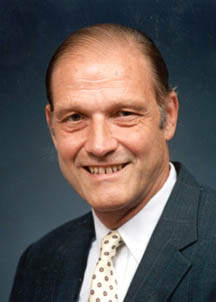
Repairing American public diplomacy
by William Rugh, Arab Media and Society, Winter, 2009
It is widely believed among academics who study the subject, and among former practitioners, that public diplomacy has not achieved its full potential,[1] and we are hopeful that the Obama Administration will now solve some of its problems. This essay focuses on the most important challenges, which in many ways concern broadcasting to the Arab world.
Public diplomacy is of course not a panacea. America’s foreign policy decisions such as the Iraq war, or its policies at home such as the Patriot Act and Guantanamo detentions, have been strongly criticized abroad, undermining our international reputation and respect. Public diplomacy by itself cannot eliminate all criticism of our policies. It can only help to mitigate objections by explaining the U.S. government’s reasons for these policies, and by reminding foreign audiences of the aspects of America they still admire, in its society, culture and political system.
It is also true that the election of Barack Obama, which has generated a generally positive reaction around the world, will not by itself burnish America’s tarnished image abroad. His new policies may help, but misunderstandings of the United States will continue, out of ignorance or deliberate distortion. Public diplomacy programs can help present an accurate picture of America to foreign audiences, a task more important than ever in this age of 24/7 information proliferation.
What are the systemic problems hindering U.S. public diplomacy and how can the Obama Administration fix them?
For the bulk of this article, click here.
Recommendations
Public diplomacy professionals and other officials ought to engage actively with all Arab media that they have access to.[29] Officials should not hesitate to participate in discussions on media channels because of a perceived hostile bias, nor should they favor “friendly†ones, because they should be willing to discuss and debate anyone. For practical purposes, they should give priority to 24/7 news channels with wide audience reach like al-Jazeera and al-Arabiya. Officials should not avoid discussing sensitive issues like Gaza where strong criticisms of American policy will be expressed because it is the task of public diplomacy professionals to explain what is behind American policy decisions and how the American public sees the issues.
Radio Sawa and al-Hurra television should be substantially reformed in several ways. Their mandate should be clarified along the lines of the VOA charter. High quality talent should be hired to manage programs in a balanced way following the charter. Independent review committees composed of bilingual professional journalists who are familiar with both America and the Arab world should be established to monitor output periodically against the revised mandate, and transcripts should be made freely available. Programming should be designed to appeal to a wide variety of target audiences, presenting serious material with a minimum of entertainment. The primary programming niche for both outlets should be focused on American culture, society, politics and policy, and less on foreign news.
Funding for international broadcasting should be increased to allow important services such as worldwide English and key language services to be maintained even as targeted broadcasting to priority areas like the Middle East continues.
The State Department’s primacy in public diplomacy should be restored, with the Pentagon information function confined to its traditional role in wartime psyops and information for American audiences. Within the Department, most of the officers in the public diplomacy career track should be staffed to public diplomacy departments, not scattered around the organization. And the department should draw on this strengthened cadre of public diplomacy professionals to fill most of the public affairs and public diplomacy positions abroad.
William A. Rugh was a Foreign Service Officer for 31 years, during which he had several USIA assignments in Washington and abroad, and two as U.S. ambassador. He has published books and articles on public diplomacy, and has been teaching graduate courses in public diplomacy at the Fletcher School.